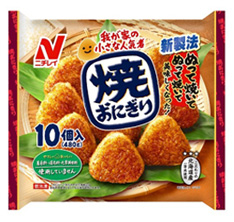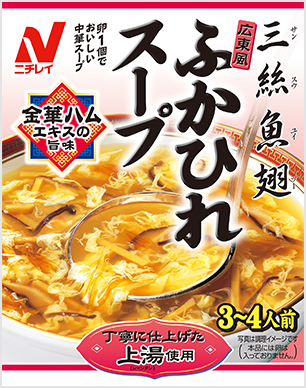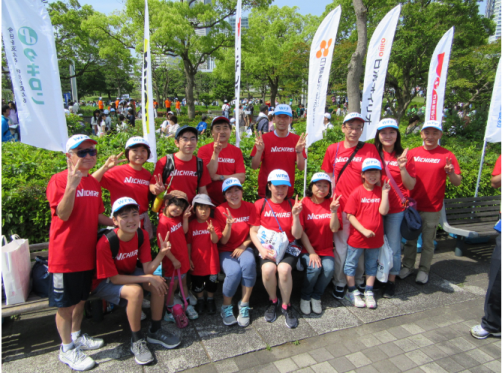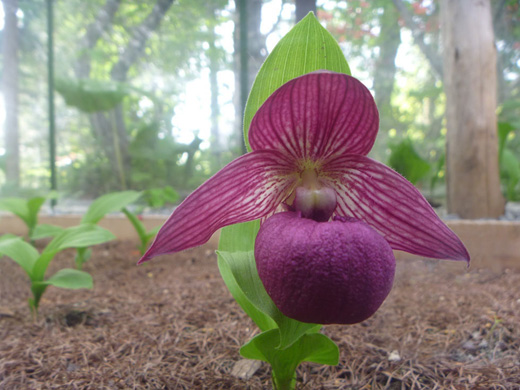Donations and Other Support
1.Donations to Support Disaster-hit Areas
Nichirei has been providing support for areas that have suffered enormous damage. They include locations affected by the Great East Japan Earthquake of 2011, the 2016 Kumamoto Earthquake, heavy rain in an extensive area of western Japan in July 2018, and Typhoon Hagibis in 2019, which was the strongest typhoon to strike mainland Japan in decades, and one of the largest typhoons ever recorded.
In 2023, we donated food through the official support contact in Japan for the United Nations World Food Programme. This wasin response to the major earthquake that had struck near the Turkish–Syrian border on February 6.
2.Donations from our Fureai Fund
Since 1993, the Nichirei Group has been operating the Fureai Fund, a matching gift program, that solicits donations from employees and the company. The aim is to make donations to help better the world. The fund donations are used for social welfare, disaster relief, and medical support through the Nichirei MIRAIterrace Foundation, set up in 2022 to help address social issues related to food and health from a long-term perspective.
Donations made through the Tokyo Goodwill Bank go to causes such a Cash Graduation Gifts, which help promote the independence of people in social care, as well as the purchase of equipment used in nursing homes and other facilities. Meanwhile donations made through the Central Community Chest of Japan help support organizations that provide relief for victims of poverty and other adverse circumstances.
3.Cooperation in Bellmark Campaign
Nichirei is a sponsor of the Bellmark Campaign.
The Bellmark Campaign is a volunteer program that was launched in 1960 with the desire to provide every child with equal access to education in an enriching environment. Nichirei strongly believes in this cause, and through the Bellmark Campaign we support a bright future for the children who will lead the next generation.
The Nichirei products involved in the program are shown below.

Yaki-Onigiri (frozen grilled rice balls)

Guangdong-fu Fukahire Soup
(Guangdong-style shark fin soup)
4.Eco-caps
All Nichirei Group workplaces collect plastic bottle caps from PET bottles to support the activities of NPOs that sell them as plastic raw materials to recycling companies, thereby raising money to fund vaccines for children in developing countries. The sale of 800 caps brings in roughly \20, which pays for a polio vaccine for one person. In contrast, were the caps burned as garbage, 3,150 grams of CO2 would be released per 400 caps, so recycling the caps also helps reduce CO2 emissions.
5.Helping Feed Children around the World
(1)Participation in Table for Two
The Nichirei Group participates in Table for Two, an employee-participation social contribution activity that starts in the employee cafeteria. The basis of the project is to make a food-support donation and involves adding ¥20—the cost of a school lunch for one child in a developing country—to the cost of cafeteria food. Moreover, the foods through which the donation is made are limited to healthy, low-calorie items, so the program also plays a role in improving employee health. The program is currently conducted at two workplaces, the Nichirei Higashi Ginza Building and the Nichirei Technology Development Center.
(2)Support for the United Nations World Food Programme
Since FY2016, Nichirei Foods has been supporting essay contests and the End Hunger: Walk the World initiative organized by the United Nations World Food Programme (WFP). A portion of the donations collected through Walk the World is used to fund the WFP’s school meals programs, which aim to end child hunger and poverty around the world. Looking ahead, Nichirei Foods plans to continue supporting food-oriented initiatives for helping feed the world’s hungry children.

6.Restoration of Endangered Cypripedium Orchid
Nichirei had a business site in Fujimi-machi, Nagano Prefecture, where an abundance of Cypripedium (Japanese name: Atsumorisou) used to grow in the wild. This led us in 2006 to start conservation and regeneration activities together with the Fujimi-machi Atsumorisou Regeneration Committee.
Cypripedium is a variety of the wild Japanese terrestrial lady’s slipper orchid. Due to illegal harvesting, damage caused by wild animals such as deer who eat it, and the impact of global climate change, wild Cypripedium has sharply declined, and the species has been designated as endangered.
The orchids that Nichirei and the Fujimi-machi Atsumorisou Regeneration Committee have painstakingly cultivated finally bloomed in mid-May 2014, a full six years after their seeds had been sown. The orchids have continued to bloom since.

Cypripedium macranthos var. kamanashi in bloom
This is one variety of Cypripedium, many of which used to grow naturally in the Kamanashi mountain range near Fujimi-machi. It is known for its deep color and size.
